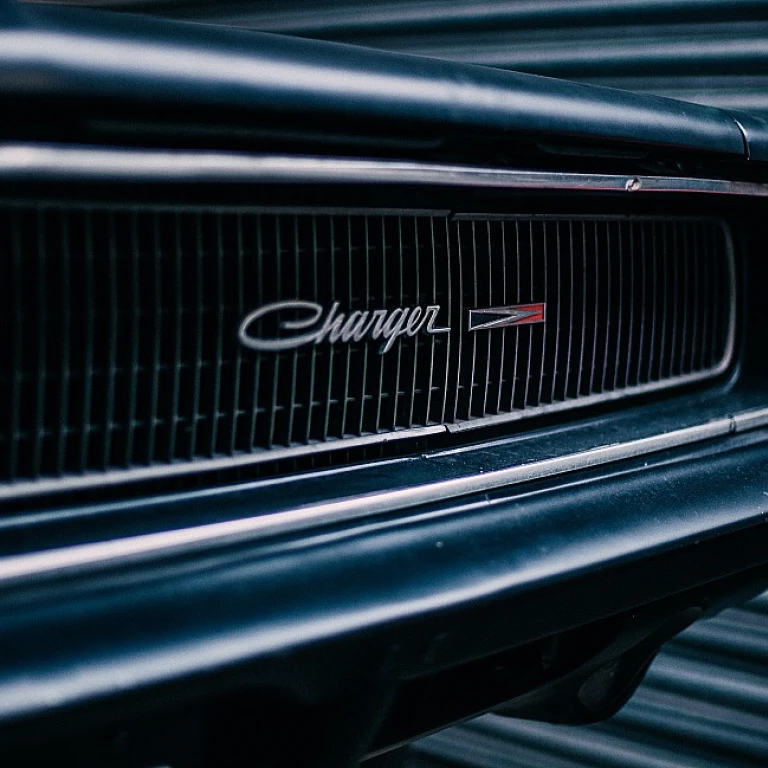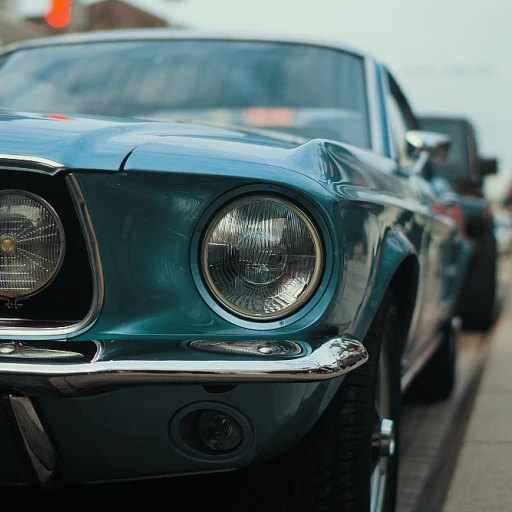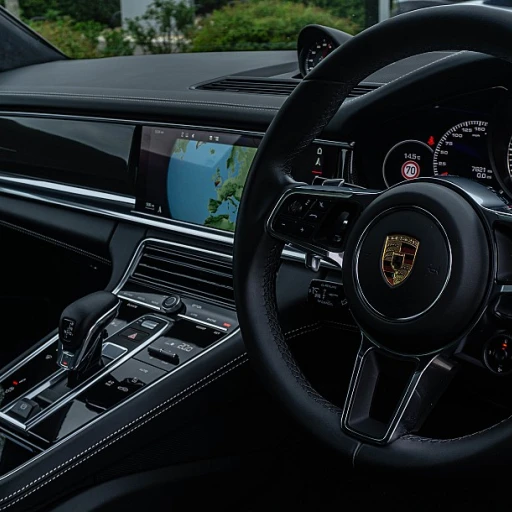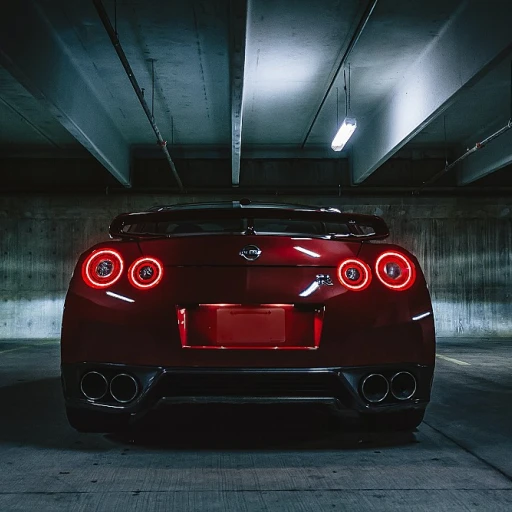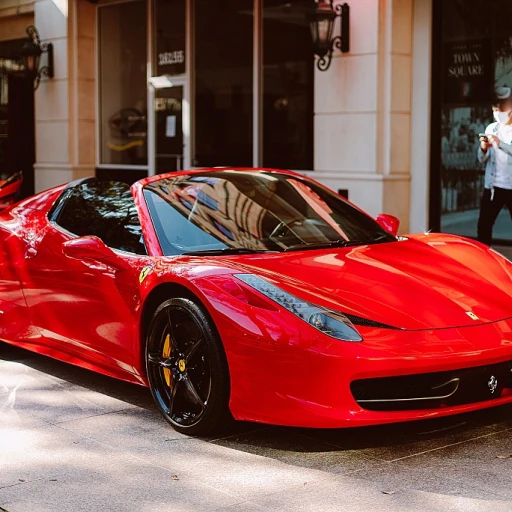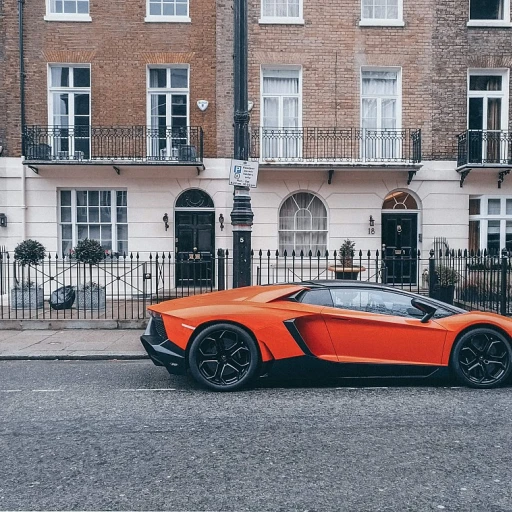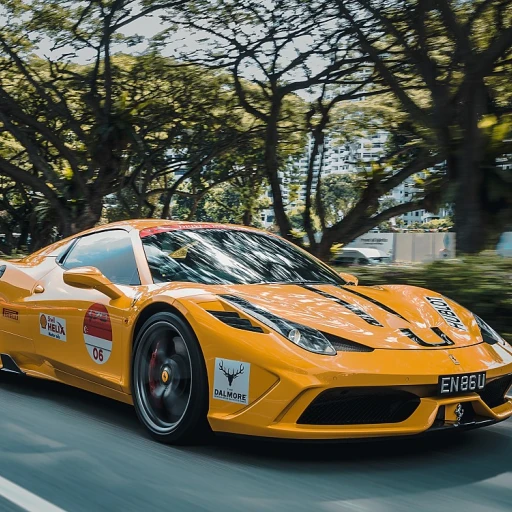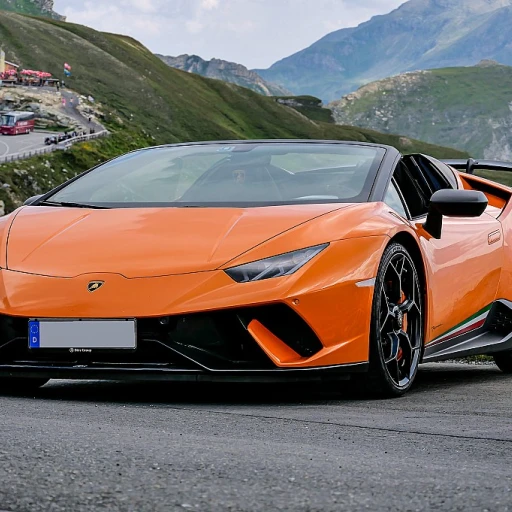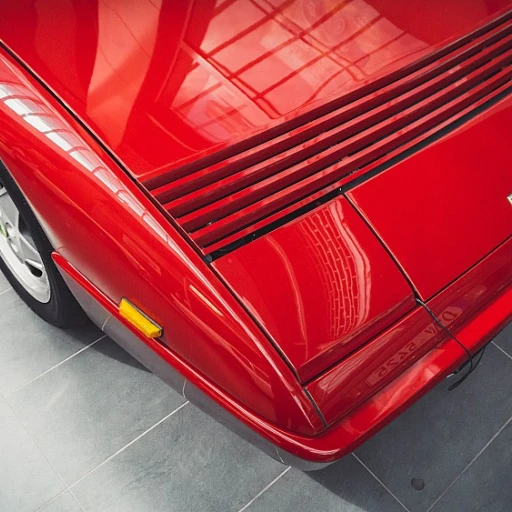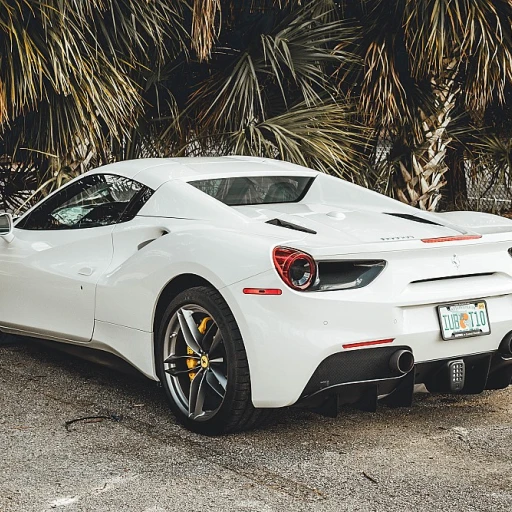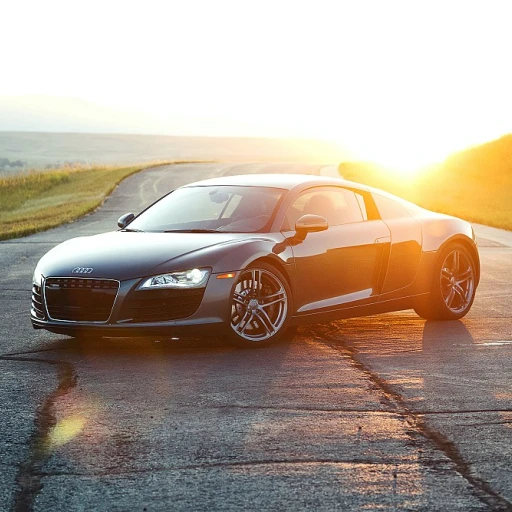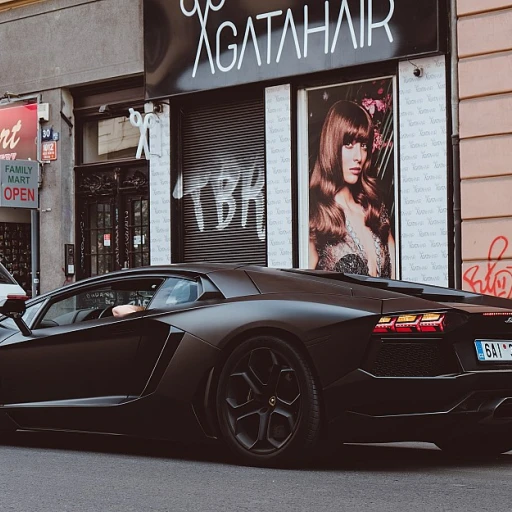
The evolution of american luxury cars
How it all began
American luxury cars have been icons on the roads of the U.S. for decades, setting benchmarks and altering the dynamics of the automotive industry. The story started way back with the visionary geniuses at Cadillac. They introduced the world’s first V8 engine in 1915, an innovation that promised more power and smoother rides.
The roaring twenties and beyond
The '20s was a pivotal era for American car brands like Lincoln and Cadillac. The Lincoln Continental, with its sophisticated design and unmatched comfort, quickly became a favorite. By the mid-20th century, brands like Chevrolet and Ford had also carved out significant niches for themselves. For a time, it seemed that the luxurious appeal of American-made cars could do no wrong.
Innovation and expansion in the 1960s and 70s
Fast forward to the swinging '60s and roaring '70s, and you have the rise of models such as the Chevrolet Corvette and the Ford Thunderbird. The Corvette, with its sleek design and high-performance engine, became the quintessential American sports car. The '60s also marked a shift towards more powerful engines and new technologies designed to enhance driving experiences.
Luxury car challenges in the 1980s and 90s
The '80s and '90s were a bit challenging for American luxury car manufacturers. Competition from European brands like BMW and Mercedes-Benz, as well as Japanese giants like Lexus, became more intense. American brands had to step up their game, focusing on both performance and opulence to stay relevant. One standout during this period was the Lincoln Town Car, a model that still resonates with luxury car enthusiasts today.
Entering the new millennium
As the 21st century dawned, American luxury cars began to catch up with their European and Japanese counterparts. High-performance engines, advanced technology, and more sophisticated designs came into play. Brands like Cadillac, often considered the gold standard of American luxury, led the charge with models like the CTS-V, offering up to 640 horsepower.
Performance and innovation in american luxury cars
Technological marvels and design innovations
When you think about American luxury cars, the names Cadillac and Lincoln immediately come to mind. These brands embody the essence of luxury and are synonymous with innovation and performance. The Chevrolet Corvette, for instance, boasts a high-performance engine that rivals many European sports cars. In recent years, Cadillac has invested heavily in technological advancements, ensuring their models, including the CT6 and Escalade, come equipped with cutting-edge features aimed at enhancing safety and driving pleasure.
Electric evolution: a new era
The future of American luxury cars is undeniably electric. All major American car brands, including Tesla and Lucid Motors, are leading the charge with groundbreaking electric vehicles. The Tesla Model S and the Lucid Air offer impressive performance, with the latter boasting up to 1,111 horsepower. Notably, Cadillac has also launched its electric luxury sedan, the Lyriq, which aims to combine the brand's hallmark luxury with the efficiency of electric power.
Enhanced comfort and performance
Luxury is all about comfort, and American brands are not lagging. The Lincoln Continental and the Cadillac Escalade are prime examples of cars designed with the utmost attention to passenger comfort. These vehicles often come with rear-wheel drive, and sophisticated suspension systems designed to provide a smooth, comfortable ride. Additionally, the beefy V8 engines and all-wheel-drive options found in models like the Chevrolet Corvette Ray ensure that performance is never sacrificed on the altar of comfort.
The high price of luxury
Luxury cars come at a price, and American models are no exception. The starting MSRP for a Cadillac Escalade is around $76,000, while the Lincoln Continental starts at approximately $46,000. Even more exclusive, the high-performance Chevrolet Corvette can easily climb past $60,000. However, these prices reflect the superior engineering, premium materials, and advanced tech found in these vehicles, offering both value and prestige.
Performance comparisons and global rankings
When pitted against European and Japanese luxury car brands, American cars hold their own remarkably well. Brands like BMW and Mercedes-Benz offer stiff competition, particularly in engine performance and technology. However, American luxury cars often provide a unique blend of performance and comfort. The Chevrolet Corvette Coupe, for example, is celebrated for its ferocious engine and sporty design, making it a strong contender in the global luxury car market.
For those intrigued by the fusion of craftsmanship and advanced safety features in luxury cars, Bentley's approach is a must-read. Check out more on this debate at this detailed breakdown.
Top american luxury car brands
Standout american luxury car brands
American luxury cars have a rich history and several brands stand out for their innovation, design, and performance. One of the most recognized names is Cadillac. Cadillac has been synonymous with American luxury, from its classic sedans to its modern, high-performance SUVs. The Cadillac Escalade has become especially iconic, with starting MSRPs in the range of $76,295, offering both power and luxury, a true testament to American engineering.
Another powerhouse in the American luxury car market is Lincoln. Known for their comfort and technology, Lincoln cars like the Lincoln Continental and Lincoln Navigator provide clients with an unparalleled luxury experience. According to experts, Lincoln's use of rear-wheel-drive platforms significantly improves performance dynamics (Forbes, 2022).
Chrysler may not be at the forefront of everyone's mind when it comes to luxury cars, but its models like the Chrysler 300 have made a strong impact. With its robust V8 engine options and plush interiors, the Chrysler 300 offers a blend of performance and comfort at a starting MSRP of $32,215.
Among sports cars, the Chevrolet Corvette has always held a special place in American luxury car lore. The Corvette Stingray and the latest Corvette Z06 models have earned high praise for their high-performance attributes, particularly their mid-engine setup and supercharged V8 engines, which deliver up to 670 horsepower. The vehicle's combination of speed, luxury, and relatively affordable price has won over a significant fan base (MotorTrend, 2023).
Diverse range and versatile performance
Including luxury brands such as Cadillac, Lincoln, and Chrysler, demonstrates the versatility and diverse range of American luxury vehicles. From the opulent Cadillac Escalade V to the high-performance Chevrolet Corvette Stingray, American luxury cars cater to different tastes and needs. Lincoln's large SUVs like the Navigator offer comfort suited for family trips, while Cadillac's V-Series cars appeal to those craving adrenaline and speed.
Forward-thinking innovations
American luxury car brands are not just about tradition but also about breaking new ground. For instance, many American brands are diving into the electric vehicle (EV) segment. Tesla, while newer compared to stalwarts like Cadillac and Lincoln, has made a massive impact on the luxury market with its high-performance electric sedans and SUVs. The Lucid Air, another EV contender, promises luxury and over 500 miles of range on a single charge, representing the future of luxury automobility (Car and Driver, 2023).
These American luxury car manufacturers integrate cutting-edge technology such as semi-autonomous driving features, advanced infotainment systems, and state-of-the-art safety measures. This technological edge is crucial as it helps American luxury cars stand out in an increasingly competitive market.
Value and customer satisfaction
Though often offering lavish features, American luxury cars also prioritize providing good value for money. The target is wealthy yet value-conscious buyers looking for a balance between luxury and performance without the daunting price tags of some European and Japanese competitors. Customer satisfaction remains a top priority, with brands continuously refining their offerings to meet and exceed expectations.
Iconic models and their impact
Classic american icons: cadillac eldorado and lincoln continental
When you think of american luxury cars, two models often stand out: the Cadillac Eldorado and the Lincoln Continental. These icons have left an indelible mark on the luxury car market, symbolizing both innovation and status.
The Cadillac Eldorado, first introduced in 1953, was a pioneer in the world of luxury vehicles. It boasted a distinctive design and powerful V8 engine, setting it apart from other cars of its time. By the 1970s, it was synonymous with high performance and comfort, gaining popularity among celebrities and business moguls.
On the other hand, the Lincoln Continental, especially the 1961–1969 models, took a different approach. Renowned for its sleek exterior and spacious interior, the Continental became a symbol of elegance and sophistication. It was the vehicle of choice for several U.S. presidents, including John F. Kennedy, enhancing its prestige.
The muscle and might of the chevrolet corvette
While the Eldorado and Continental ruled the luxury sedan market, the Chevrolet Corvette carved its niche as a high-performance sports car. Launched in 1953, the Corvette was America's answer to European sports cars like the Porsche and Ferrari. Its powerful V8 engines, combined with a lightweight body, offered unmatched speed and agility. The Corvette Ray models, especially the Stingray introduced in 1963, became legendary for their design and performance.
In recent years, the Chevy Corvette continues to evolve. The latest models, such as the 2023 Corvette Z06, come with a formidable 670 horsepower engine and rear-wheel drive, ensuring it remains a favorite among sports car enthusiasts. Starting MSRP for the new models ranges from $60,900, a competitive price for such a high-performance vehicle.
Modern marvels: the escalation to electric
In the age of electric vehicles (EVs), american luxury car brands haven't been left behind. The rise of electric models like the Cadillac Lyriq and the Lincoln Aviator Grand Touring underscores this shift. These vehicles blend opulence with sustainability, offering cutting-edge tech features and impressive electric ranges.
The Cadillac Lyriq, for example, offers over 300 miles on a single charge and boasts luxury features such as a 33-inch LED display. Meanwhile, the Lincoln Aviator Grand Touring combines an electric motor with a 3.0-liter V6 engine, delivering a potent 494 horsepower, ensuring that performance isn't sacrificed for eco-friendliness.
The competition: bmw and mercedes-benz
American luxury cars face stiff competition from European and Japanese brands like BMW and Mercedes-Benz. The BMW Series 7 and the Mercedes-Benz S-Class are direct competitors to models like the Cadillac CT6 and the Lincoln Continental. These European cars often have an edge in terms of advanced technology and interior refinement, but american cars are catching up, integrating more tech and focusing on high-quality materials.
Despite these challenges, american luxury cars remain a testament to the nation's innovative spirit and dedication to excellence. Whether it's the heritage of the Cadillac Eldorado, the sleekness of the Lincoln Continental, or the power of the Chevy Corvette, these vehicles continue to leave a lasting impression in the high-performance and luxury market.
The rise of electric and hybrid luxury cars
Electric revolution in the luxury sector
Electric cars have been making waves in the automobile industry, and the luxury car segment is no exception. American manufacturers, long known for their V8 engines and muscle cars, are embracing this greener alternative with impressive results.
Cadillac leads the charge
Cadillac is at the forefront of this revolution, introducing the Lyriq, an all-electric SUV. Boasting an estimated range of over 300 miles per charge and more than 340 horsepower, the Lyriq stands out as a serious contender in the electric luxury car market (source).
Lucid Air: the new kid on the block
The Lucid Air is another player making headlines. With a starting MSRP of $77,400 and offering up to 1,111 horsepower, this sedan is redefining what luxury and high performance mean in an electric context. The Dream Edition R model even boasts a range of up to 503 miles, challenging the best Tesla has to offer.
Tesla sets the standard
Of course, no discussion of electric luxury cars is complete without mentioning Tesla. Models like the Model S Plaid, which has a whopping 1,020 horsepower and accelerates from 0 to 60 mph in just 1.99 seconds, set high standards that other manufacturers are striving to match.
Lincoln's future plans
Lincoln is not being left behind in this shift. With plans to electrify half of its global volume of vehicles by 2030, Lincoln is committed to creating an impressive lineup of electric and hybrid vehicles. The upcoming Lincoln Star concept hints at a bold and luxurious future for the brand.
Price and buyer expectations
While these innovations bring excitement, they also come at a cost. Luxury electric cars often carry a hefty price tag; for example, the Cadillac Lyriq starts at $58,795. Nevertheless, buyers seem willing to pay for eco-friendly luxury without compromising on performance.
Advantages and controversy
The advantages are clear: zero emissions, reduced running costs, and silent operation. However, there are also controversies. The environmental impact of battery production and disposal, along with range anxiety, remain challenges that manufacturers are working to address.
Conclusion
The rise of electric and hybrid luxury cars showcases American manufacturers' ability to innovate and adapt. From Cadillac’s Lyriq to the cutting-edge Lucid Air, the future looks bright and green for American luxury cars.
Price and value: what to expect
Breaking down the price and value equation
The allure of american luxury cars isn't solely wrapped up in their performance and innovation; price and value are pivotal factors too. Each brand, from Cadillac to Lincoln, has carved its niche by offering unique propositions that blend elegance with power.
Luxury that fits your wallet
While the starting MSRP of top-tier models like the Chevrolet Corvette might begin at around $60,000, others, like the Lincoln Continental, hover closer to $50,000. On the higher end, the ultra-luxurious Cadillac Escalade positions itself at nearly $100,000.
According to a 2022 report by Statista, the luxury car segment in the U.S. recorded an average transaction price of around $66,000 [source: Statista].
Valuable investments
The value isn’t just about the price tag though. With brands like Cadillac and Lincoln, you’re investing in legacy and quality. A well-maintained Chevrolet Corvette or a vintage Lincoln Continental often appreciates in value over time, making them both a luxury and an investment.
Maintenance and longevity
It’s key to factor in the cost of ownership, which includes maintenance, insurance, and depreciation. Brands like Cadillac and Ford are praised for their reliability scores. For example, according to J.D. Power, the Buick ranked highly in terms of long-term dependability, showcasing that American luxury is not just about an upfront splurge but enduring performance and less frequent repairs .
Comparing value with European and Japanese counterparts
When juxtaposed against luxury brands like BMW, Mercedes-Benz, and Lexus, American luxury cars often offer a higher level of features for a lower price point. For instance, while the 2023 Cadillac CT5 starts at around $37,000, you’d be looking at over $41,000 for a comparably equipped BMW 3 Series .
Comparing american luxury cars to European and Japanese competitors
American luxury cars vs. european and japanese competitors: a head-to-head comparison
When it comes to luxury cars, a showdown between American, European, and Japanese brands is inevitable. Each region offers distinct features, styles, and performance specs that appeal to different segments of car enthusiasts. So, how do American luxury cars stack up against their global rivals?
Performance and driving experience
American luxury cars, such as the Cadillac CTS-V and the Chevrolet Corvette, are well-known for their raw power and muscle. These cars often boast high horsepower and large engines, making them perfect for anyone with a need for speed. A Chevrolet Corvette, for instance, comes with a starting MSRP of around $60,995, offering a V8 engine that produces up to 495 horsepower.
On the other side of the Atlantic, European brands like Mercedes-Benz, BMW, and Audi, focus more on blending performance with refined engineering. The BMW 7 Series offers a sophisticated balance of power and luxury, starting at $86,000. Meanwhile, Japanese luxury brands like Lexus and Acura bring a unique combination of reliability and advanced technology to the table. The Lexus LS, for example, starts at $75,450 and is renowned for its smooth, reliable ride.
Luxury and comfort
Luxury is deeply embedded into the dna of American brands like Lincoln and Cadillac. The Lincoln Continental and the Cadillac Escalade are prime examples of maximum comfort and cutting-edge amenities at an accessible price point. The Lincoln Continental starts at $46,305, offering massaging seats and a premium sound system.
Meanwhile, European counterparts like Mercedes-Benz S-Class come with a certain level of prestige and sophistication that's hard to match. These vehicles offer state-of-the-art interior finishes and high-tech features, but also come with a steeper price tag. The S-Class starts at around $111,100 and is packed with luxury trim options and advanced driver assistance features.
Japanese luxury brands focus on creating a serene, almost zen-like driving environment. The Lexus LS, with its Whisper-quiet interior and intricate finishing touches like bamboo trim, is unrivaled in achieving a tranquil driving experience.
Innovations and technology
American luxury brands are increasingly pushing the envelope with technology. Take the Tesla Model S, a pioneer in electric cars, offering an impressive range of up to 412 miles. Tesla has set the bar for innovation with features like Autopilot and over-the-air software updates.
European brands, especially the Germans, have long been leaders in automotive technology. Audi's Virtual Cockpit, BMW's iDrive system, and Mercedes-Benz's MBUX are all testaments to their cutting-edge tech offerings. However, these features often come at a higher price.
Japanese companies have also embraced technology, yet they add their twist. Lexus integrates advanced driver assistance features in their models as standard, making luxury more accessible.
Electric vehicle adoption
The rise of electric vehicles (EVs) presents an interesting battleground. American brands, led by Tesla and newcomers like Lucid Motors, are making significant strides. The Lucid Air, which starts at $77,400, boasts a range of up to 503 miles and a maximum horsepower of 1,111, challenging not just other American cars but EVs globally.
European brands may have been a little slow off the starting block but are catching up fast. Porsche's Taycan and Mercedes EQS show that luxury and electric do coexist beautifully. The Taycan starts at $82,700 and is known for its exhilarating performance and luxury.
In Japan, Toyota's premium electric models under the Lexus brand, like the UX 300e, are setting a benchmark in reliability and performance.
Price and value
Price and value perception significantly influence buying decisions. American luxury cars often provide high value for money with robust performance and features. However, European cars, although generally more expensive, are perceived as status symbols and tend to maintain their value better over time. Japanese cars strike a balance between cost, reliability, and advanced features, making them a practical choice for many consumers.
Expert insights and quotes
According to automotive expert John McElroy, host of "Autoline Daily," "American luxury brands have come a long way and now legitimately compete with the best from Europe and Japan. The key will be continued innovation and maintaining their unique identity."
Another perspective from Jessica Caldwell, Edmunds' executive director of industry analysis, highlights, "The adoption of electric vehicles by traditional American luxury brands is crucial in this global face-off. Tesla has already shown what's possible, and it’s pushing others to catch up."
Future trends in american luxury cars
Emerging technologies shaping the future
The future of american luxury cars hinges on cutting-edge technologies and innovations. Manufacturers like Cadillac, Lincoln, and Chevrolet are investing heavily in advancements that promise to redefine both performance and luxury. Currently, 35% of new luxury innovations focus on hybrid and electric powertrains, which resonate with the growing market demand for eco-friendly vehicles.
The electric revolution
Electric and hybrid models are gaining significant traction in the luxury car market. Cadillac's introduction of the Lyriq, a fully electric SUV, marks a significant step towards sustainable luxury. With a starting MSRP of $58,795, the Lyriq competes with models like the Tesla Model X and the Lucid Air. Experts like Sandy Munro, an automotive engineer, believe that by 2030, electric vehicles will constitute over 50% of the luxury car segment in the U.S.
Connectivity and autonomous driving
Enhanced connectivity and autonomous driving features are becoming essential components in luxury cars. Brands like Lincoln and Ford are incorporating advanced driver-assist systems in their latest models. For instance, the Lincoln Navigator features the Co-Pilot360 technology, which includes adaptive cruise control and lane-keeping assistance. Reports reveal that 60% of luxury car buyers prioritize advanced safety features over traditional luxury elements.
Personalization and user experience
Customizability and user experience remain crucial for luxury car buyers. Cadillac's Super Cruise, a semi-autonomous driving system, allows drivers to customize their experience with personalized settings. The use of augmented reality in the head-up display, like in the Mercedes-Benz S-Class, is setting new standards. According to a study by J.D. Power, 48% of luxury car owners seek personalized features that enhance their driving experience.
The influence of new competitors
New entrants like Lucid Motors and Rivian are challenging traditional brands with innovative models and cutting-edge technology. Lucid's Air sedan, boasting up to 1,111 horsepower, disrupts the market with its high performance and luxury. With a base price of around $77,400, it aims to rival established giants like BMW, Audi, and Mercedes-Benz. Experts predict that competition will drive more traditional brands to adopt aggressive strategies, incorporating technologies previously unheard of, all in a bid to capture and maintain market share.
Keeping pace with global trends
American luxury cars are also influenced by global trends. The growing demand for electric and hybrid vehicles in Europe and Asia is pushing manufacturers to innovate. Models such as the Chevrolet Corvette E-Ray incorporate hybrid technology while preserving traditional performance elements. The combination of a 6.2L V8 engine and an electric motor, producing 665 horsepower, highlights the blend of tradition and innovation. Experts believe that integrating these global trends will be key to remaining competitive in the luxury car market worldwide.

